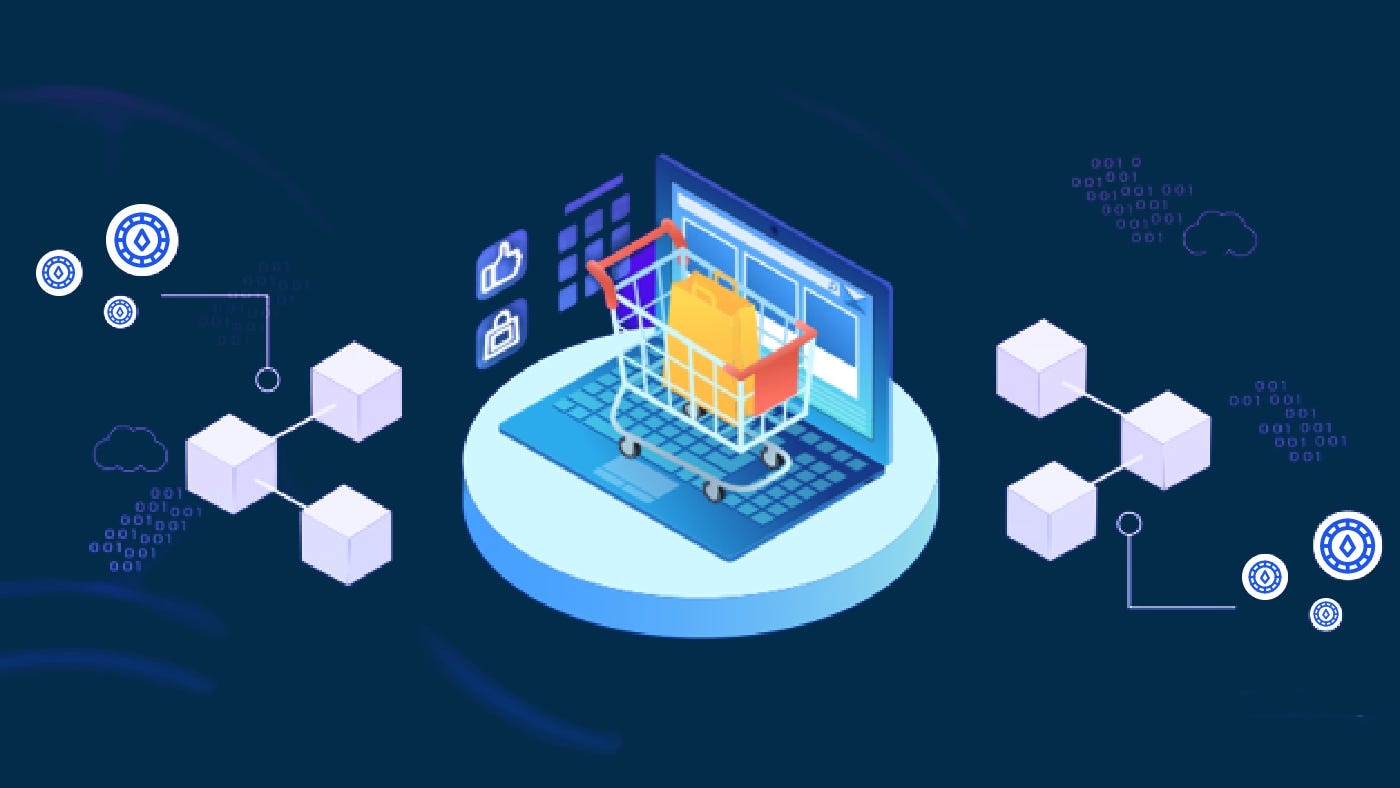A. Explanation Of Web3 And Its Significance
Web3 refers to the next generation of internet technology that aims to empower users with control over their personal data and online identity through decentralized systems and blockchain technology. It’s significant because it not only moves beyond the current Web2 model of centralized control but also towards a more open, transparent and secure web
B. Overview Of The Benefits Of Web3 Shopping
Web3 shopping is a decentralized and trustless shopping experience enabled by blockchain technology and smart contracts. This new model of shopping offers several key benefits that are below:
Security:
Decentralized systems make it harder for hackers to access sensitive information, reducing the risk of data breaches and fraud.
Privacy:
Users have more control over their personal information and can choose to share only whatever they want to share with merchants.
Transparency:
It’s quite easy to track and verify the transactions, because they are on a decentralized network and are recorded on a public ledger.
Interoperability:
Web3 technology is an open and interoperable technology. It’s designed to allow for a more seamless shopping experience across different platforms and marketplaces.
Reduced fees:
Nowadays, both the merchants, and the customers are looking for a reliable way to reduce transaction fees completely. And grateful to Web3 shopping that makes it possible and also removes intermediaries from the entire shopping procedure.
Empowerment:
Web3 technology gives users the ability to take control of their data & online identity, and also enable them to make informed decisions about how they can use this latest technology.
These benefits make Web3 shopping an attractive alternative to traditional e-commerce models and have the potential to revolutionize the way individuals buy and sell goods and services online.
The purpose of this article “Web3 Shopping: Buy and Sell Without Intermediaries” is to educate the readers about the concept of Web3 shopping website development and its potential benefits, such as-
- Increased security
- Privacy
- Transparency
- Interoperability
- Reduced fees
- Empowerment
Honestly speaking, the article highlights how Web3 technology can disrupt conventional e-commerce models by enabling a decentralized and trustless shopping experience.
II. Understanding Web3 And Decentralized Ecommerce
Web3 refers to the next generation of the internet that utilizes decentralized systems and blockchain technology. Decentralized ecommerce is a form of online shopping that operates on a decentralized network, enabling buyers and sellers to transact directly without intermediaries. This model offers several benefits, including increased security, privacy, transparency, reduced fees, and greater control over personal data and online identity. Web3 and decentralized ecommerce are poised to disrupt traditional e-commerce models and transform the way we buy and sell goods and services online.
A. Definition of Web3
Web3 refers to the next generation of internet technology that utilizes decentralized systems and blockchain technology to give users control over their personal data and online identity.
B. Explanation of Decentralized Ecommerce
Decentralized eCommerce is a form of online shopping that operates on a decentralized network, enabling direct transactions between buyers and sellers without the interference of intermediaries.
C. How Web3 And Decentralized Ecommerce Differ From Traditional Ecommerce
Unlike traditional eCommerce, which was operated on the centralized platforms and controlled by a few dominant players, Web3 and decentralized eCommerce also empower users with greater control, security, privacy, and transparency in their online transactions. Additionally, fees in modern eCommerce are often lower as compared to conventional eCommerce. It’s so because of the removal of intermediaries from the entire shopping procedure.
III. Challenges Of Implementing Web3 Ecommerce
A. Adoption –
Adoption is one of the key challenges of implementing Web3 eCommerce . It leads to several difficulties that businesses and consumers have to face while adopting and using this latest technology.
B. Scalability –
Implementing Web3 ecommerce also requires scalability of the technology to handle large amounts of transactions.
C. Integration With Existing Systems –
Integrating Web3 ecommerce with existing systems and legacy technologies can also be a challenge.
D. User Experience –
Ensuring a seamless and user-friendly experience for both businesses and consumers is crucial for the success of Web3 ecommerce.
IV. The Future Of Web3 Ecommerce
A. Predictions And Trends:
The Future of Web3 ecommerce is expected to be decentralized, user-driven and secure. Blockchain technology is also playing a major role in the Web3 eCommerce website Development in the coming years.Furthermore, AI, VR and other advancements that are also expected to shape the industry.
B. Opportunities For Growth And Innovation:
Web3 ecommerce will offer new possibilities for marketplaces, payment systems and customer data management, leading to increased competition and innovation in the shopping industry.
C. Potential Impact On The Traditional Ecommerce Industry:
The adoption of Web3 technologies by traditional ecommerce companies could bring improvements in security, transparency and customer experience, as well as create new opportunities for growth. On the other hand, traditional companies that do not adopt these technologies may struggle to remain competitive in the changing landscape.
V. Conclusion
The future of Web3 eCommerce is poised for significant growth and changes in the coming years. With advancements in technology, decentralization and security being the driving factors, the industry is likely to see new innovations and opportunities emerge. The adoption of blockchain and other Web3 technologies will play a major role in shaping the industry and could lead to a major disruption of the traditional ecommerce landscape. Companies that are able to embrace these changes and incorporate them into their business models will definitely be well-positioned to succeed in the evolving ecommerce landscape.
